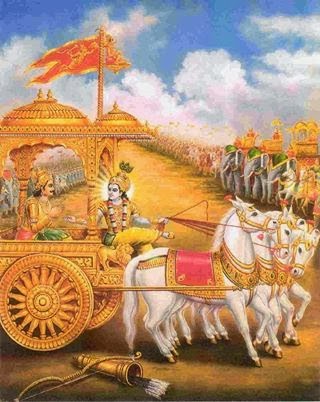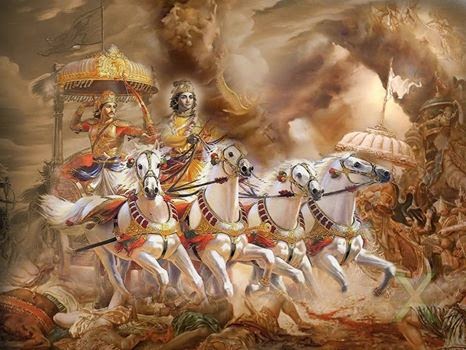Gita : Ch-2. Slo-32.
.jpg)
Srimad Bhagavad-Gita : Chapter-2. ( Samkya-yogam ) Slokam-32. ( Lord persuades Arjuna : O Partha, happy are the kshatriyas to whom such fighting opportunities come unsought, opening for them the doors of the heaven ( Swargham ).) Yadrcchaya copapannam swarggadvaramapavrtam, Sukhinah kshatriyah partha labhante yuddhamidrsam. partha! = hey Arjuna! yadrcchaya upapannam = by its own accord, arrived at; apavrtam swarggadvaram ca = wide open door of heaven; idrsam yuddham = like this war; sukhinah kshatriyah labhante = available to very lucky kshatriyas only. The impending war is happening by ...

.jpg)


.jpg)





.jpg)
.jpg)